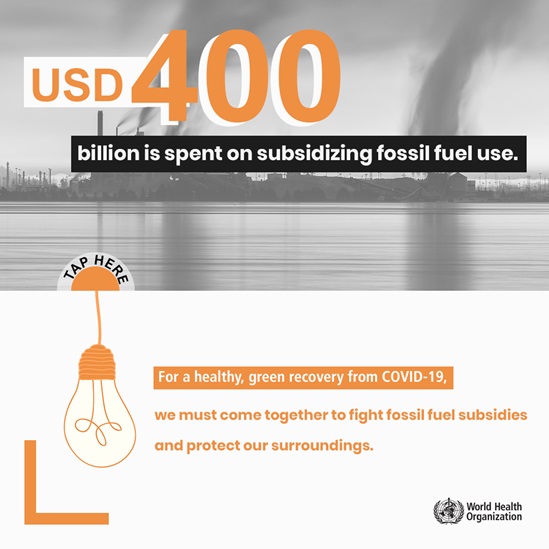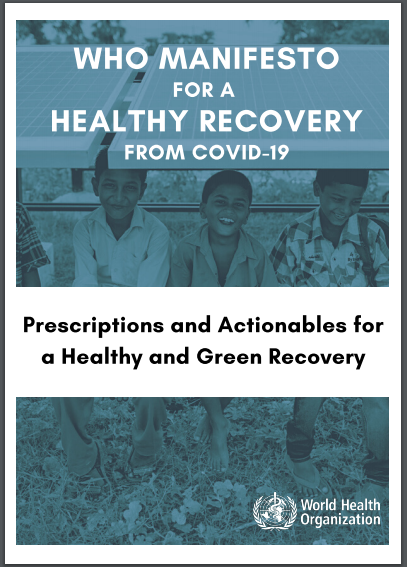WHO prescription 6: Stop using taxpayers money to fund pollution
The economic damage from COVID-19 and the necessary control measures, is very real, and will place huge pressure on Government finances. Financial reform will be unavoidable in recovering from COVID19, and a good place to start is with fossil fuel subsidies.
Globally, about US$400 billion every year of taxpayers money is spent directly subsidizing the fossil fuels that are driving climate change and causing air pollution. Furthermore, private and social costs generated by health and other impacts from such pollution are generally not built into the price of fuels and energy. Including the damage to health and the environment that they cause, brings the real value of the subsidy to over US$5 trillion per year- more than all governments around the world spend on healthcare – and about 2,000 times the budget of WHO.
Placing a price on polluting fuels in line with the damage they cause would approximately halve outdoor air pollution deaths, cut greenhouse gas emissions by over a quarter, and raise about 4% of global GDP in revenue. We should stop paying the pollution bill, both through our pockets and our lungs.
Actionables
- Stop subsidies on fossil fuels, such as for power generation and transport.
- Subsidize or exempt tax of clean energy and fuels such as solar-, hydro- and wind-based electricity.
- Embed environmental and health benchmarks in the financial recovery packages to COVID-19, e.g. by including ‘do no harm’ principles in the financial taxonomy of recovery packages and by actively investing in low-carbon and job-intensive sectors, including the health sector.


